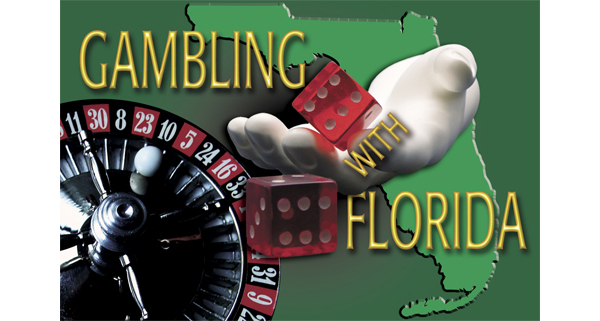
A pro-business Republican, one not beholden to the religious faction of the party, gets elected governor. Before he even warms the desk chair in the governor’s office, he meets with Las Vegas figures interested in expanding gambling in the Sunshine State. What are the odds of success?
As it turns out, Rick Scott’s engagement with gambling in Florida has been disastrous since the day he took office in January 2011.
“I try to think about what’s best for the citizens of Florida, then make my decisions from there,” Scott said, during a February 1 visit this year to Seminole headquarters, in a failed attempt to push a compact through the legislature.
Beyond that, he hasn’t said much about his gambling-related efforts in the past five years.
Former state representative Jim Waldman, who served as president of the National Council of Legislators from Gaming States, believes that Scott’s style is responsible for his ineffectiveness. Scott was chief of the large health company Columbia/HCA before being elected governor, his first political office.
“You have to involve all the stakeholders to get a deal like this done,” says Waldman, a Democrat running for the Florida Senate. “It’s typical for him. He makes decisions and doesn’t really try to see them through. He did the same thing on Medicaid expansion.
“When you are a CEO you can make decisions, but when you’re the head of a state you have to engage the house, the senate and all of the stakeholders. That’s how legislation works. It’s his singular focus and he thinks he has the power to do things without engaging everybody else, and that’s a missed opportunity and totally a misread on how to get things done in Tallahassee,” Waldman says.
“If you were to put everyone in a room together you could actually bang out a deal.”
Waldman pointed out that Scott dropped the ball on complaint by the Seminoles that the state violated their compact by allowing banked card games and electronic blackjack. Racetrack casinos received approval to run their versions of 3-card poker, Pai Gow, Ultimate Texas Hold ‘em, and Casino War via the state’s Division of Pari-Mutuel Wagering. In response, the Seminoles said the racetrack casinos were cutting in on their monopoly, for which the Seminoles paid $1 billion to the state over a five-year period.
Waldman says there’s a clause in the compact that implores the legislature to first assess – and work out – tribal complaints, rather than leaping into legal battles. Scott ignored that option.
“All that did was put the state of Florida in a worse position for litigation,” Waldman says. “He’s just not on top of it.”
In 2010, Scott won the Republican primary for governor over party favorite Bill McCollum, who had support from Florida’s determined anti-casino interests. Two weeks after winning the November general election, Scott flew to Las Vegas, where he met noted Republican and Las Vegas Sands owner Sheldon
Adelson. But any high expectations were dashed after Scott took office. Bids to open resort-hotel casinos in Florida floundered and are now dead. Overall, numerous misplays have marked Scott’s administration:
The biggest prize in gambling, the lottery, had a meltdown.
Upon taking office, Scott appointed Cynthia O’Connell, a close friend of his wife, as lottery secretary. Each year state lottery play exceeds $4 billion, with more than $2 billion going to the state. By comparison, the state takes in only about $200 million via slots and poker. O’Connell averted her eyes from dishonest vendors until she had no choice. A Palm Beach Post investigative series found that store owners and others were winning at incredible rates, defying near-impossible odds. O’Connell finally had to resign in the fall of 2015 after it was revealed she took nine weeks of vacation in 2014 and racked up nearly $30,000 in travel bills.
He moved too slowly to stop Internet cafés
Although Scott acknowledged in May 2012 that Internet cafes needed to be banned, this unregulated industry continued to grow unchecked across the state, raking in up to $1 billion annually. Not acting cost Scott his lieutenant governor, Jennifer Carroll, who had to step down in March 2013, after being questioned about consulting work she did for a Jacksonville non-profit called Allied Veterans of the World — which ran dozens of Internet gambling cafes throughout the state. Only then did the Florida legislature pass laws banning Internet cafes and crippling a related venture, senior arcades.
Scott faltered with destination casinos
Scott’s election pledge was to add 700,000 jobs in Florida; building destination casinos would have helped meet that goal. But the combined pushback from the Seminole Tribe of Florida, pari-mutuels, the theme park industry, and those philosophically opposed was too great.
He fiddled too much with the Division of Pari-Mutuel Wagering
Under his first chief of staff, Steve MacNamara, the governor’s office essentially fired director Milt Champion, who had refused to approve rodeo-style barrel racing as a pari-mutuel venture. Scott’s office has been trying to unravel the barrel racing mess ever since.
Attorney General Pam Bondi misled the public in making anti-casino claims
Bondi – in the news lately because of Trump University and the Orlando nightclub shooting – spoke in December 2011 against casino expansion. She said that she talked “personally to many law enforcement officers and in Hillsborough County, many of the last drug trafficking cases that they made, the money was laundered through the casino.” When pressed to name which casino, she said it was the Seminole Hard Rock in Tampa. The Hillsborough County Sheriff’s Office said there has never been even one such case, and Bondi later said she did not speak to “many” officers, but that her information came from only one person — at a charity function. Scott kept quiet, declining to publicly correct Bondi, a fellow Republican who some now see as a likely future candidate for governor.












